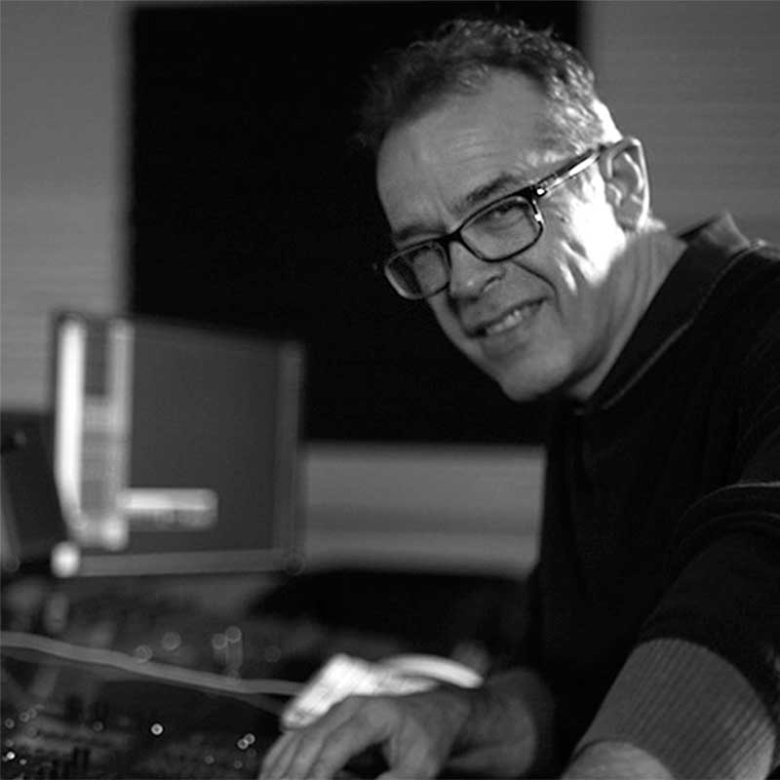Creative collaboration expert Dr Jem Mackay on its power in filmmaking
20 November 2023

Dr Jem Mackay, course leader for Falmouth’s Film & Television (Online) MA, is a filmmaker and artist who has been exploring collaborative systems in creative projects for 25 years. From working on group art events in non-art public spaces to initiating art collectives across the UK, Jem is a passionate advocate for non-hierarchal art production.
His PhD explored open-source approaches to distributed filmmaking, and it is this expertise that underpins his support for Falmouth’s growing global network of filmmaking students. We chatted to him about his approach, and why he thinks collaboration is the future of the screen industries.
When did you first become interested in filmmaking?
I've always been interested in films, but I can distinctly remember as a teenager going on a family holiday and spending a lot of time reading about filmmaking. I then went to Saint Martin’s School of Art to study graphic design, but after the first year I decided that I was going to specialise in film and video.
When we work together, our strengths can overwhelm our weaknesses, and I really believe that global collaboration is the future of filmmaking.
I made four films over the following two years – by that point I had completely caught the filmmaking bug. Subsequently, I read a book about the annotated screenplay for the film JFK by Oliver Stone, the director behind some very controversial but acclaimed movies. One of the things that stayed with me after reading that book was the enormous potential for collaboration in filmmaking.
Is there a film or television programme that has made a significant impact on you as a creative?
Whenever I get asked this question, I always say the same thing: the 1982 original version of Blade Runner. I love that film because it was not only incredibly entertaining, but it had some serious thoughts about the future and where we were going as a human race – including some early reflections on AI. There is something about the idea of the ‘ghost in the machine’ that I really like, as well as how it manages to be both entertaining and reflective of deeper life perspectives.
What projects are you currently working on?
I’ve been working on the sound design for a new short film called The Birdwatcher by Ryan McFall. It hasn’t been released yet, so can’t give too much away, but it’s a very alternative idea. I’ve been challenged to make sounds for elements of the film which have no obvious visual elements – the sound of water becoming gelatinous, for example. So, I’ve been mixing the sounds of alligators and lions and all sorts of horrific sounds that you might come across – it has been great fun!
As an expert on and initiator of collaborative art production, why are you so interested in this?
I did my PhD in collaborative filmmaking, which was in part inspired by my own history. I was brought up in Nigeria and one of the things that you had to watch out for was the ‘white ant’, or the termite, which could eat and destroy wooden houses. This tiny creature - which has a brain the size of a pinhead - is singularly not complex, yet when they collaborate in their colonies, they are able to build large and sophisticated structures with advanced functionalities, such as the ability to control temperature.
There’s something incredibly special about the global network we’re creating.
So, the strength of the collective termite network is somehow much greater than the sum of its parts, and that idea – of coming together and making something incredible – made an impression on me from an early age. I think in a filmmaking context, this very much applies, and makes us ask the question: how can we get the most out of our creativity?
What do you think the future of filmmaking looks like?
When we work together, our strengths can overwhelm our weaknesses, and I really believe that global collaboration is the future of filmmaking. On the online master’s, the energy that I see amongst the students, and their ‘get up and go’ attitude, really inspires me, and there’s something incredibly special about the global network we’re creating.
With the rise of AI, we need to consider how to collaborate not only with each other, but with things outside of humanity. We need to work towards collaborating with animals and with the environment – instead of dominating them – and so need to collectively determine the right structures to help us do this.